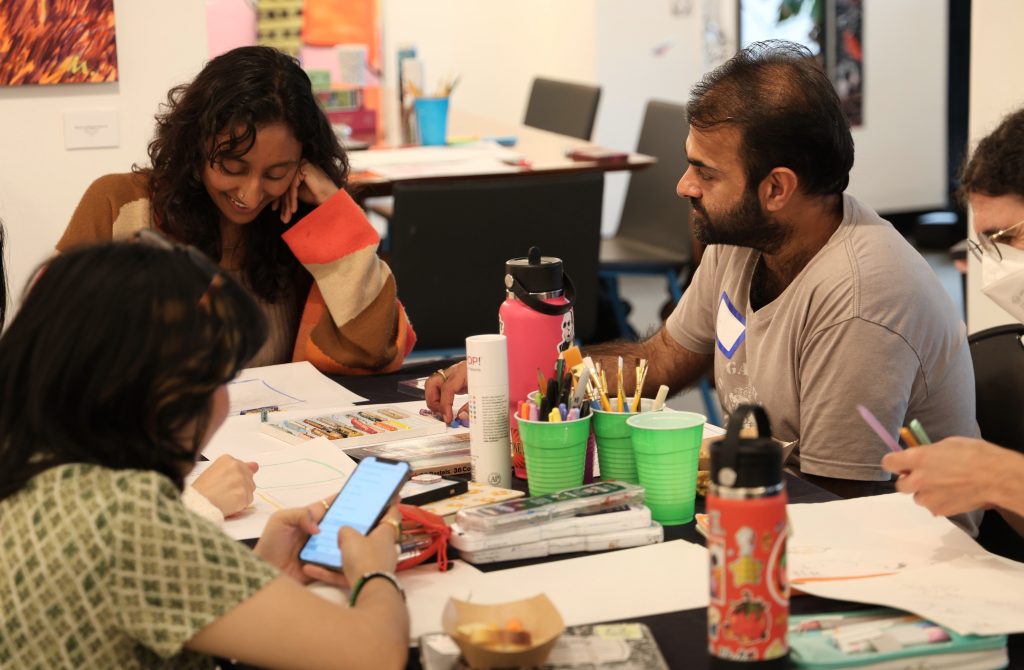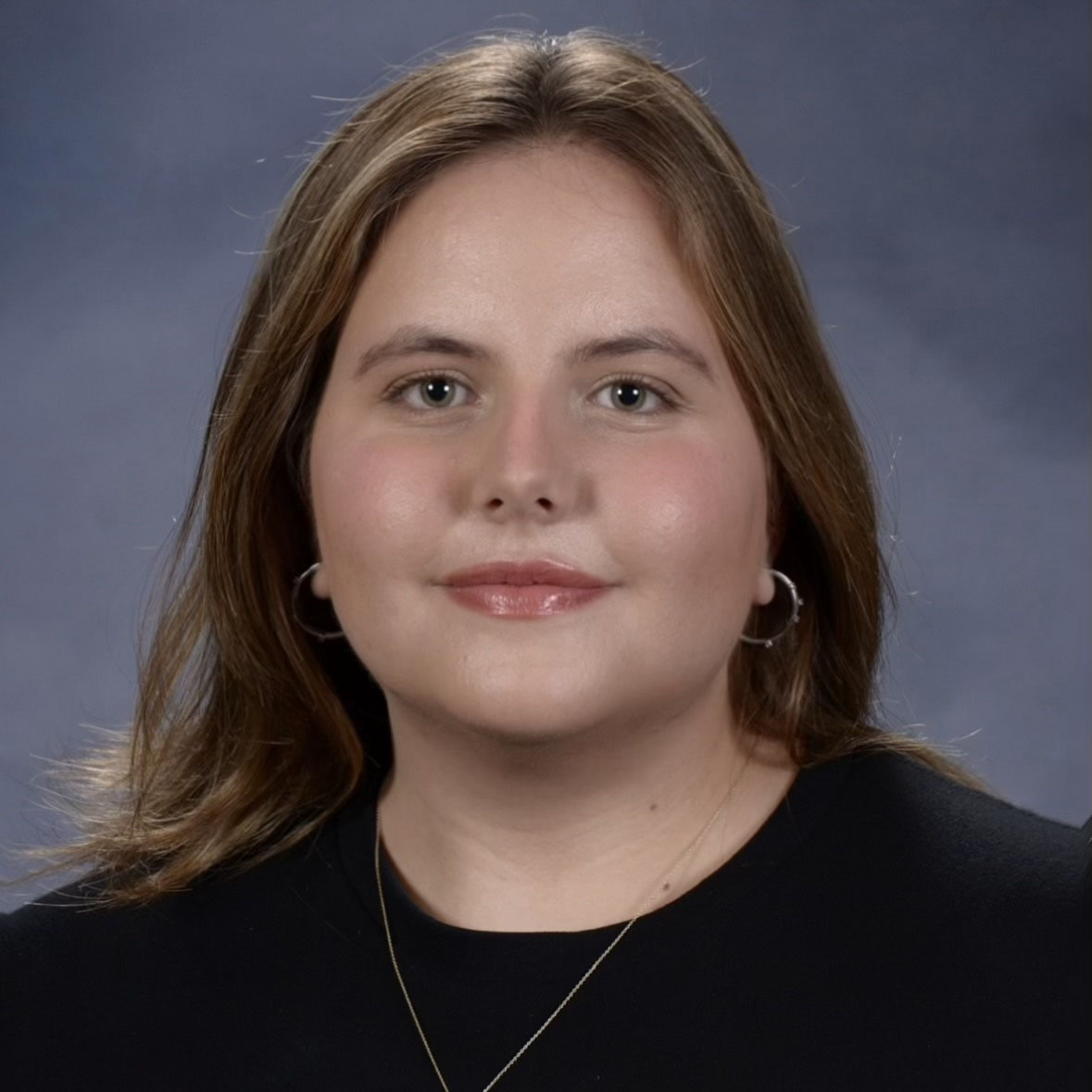
OAKLAND, Calif. — At ARTogether’s Oakland gallery, the opening of their new exhibit, over/exposed, came amid uncertainty about the nonprofit’s future, as steep federal and city funding cuts slashed its budget in half.
“Things are dire,” said Sarah Dawson McClean, ARTogether’s public affairs and communications manager. “We are trying to pivot in how we do our programming in a way that is sustainable because of the funding that is now missing.”
The nonprofit supports immigrant and refugee communities through wellness and healthcare workshops, school-based arts education for newcomer students, and mentorship and grant opportunities for working immigrant and refugee artists. These programs include Children’s Summer Camp Programs, Art-Based Support Groups for Afghan Women, and Art Classes in the two largest newcomer schools in the East Bay, among others.
“The reality is that this year, because of policy changes that have come from the federal level, it has shifted how everybody funds the arts,” McClean said.
In a May budget proposal, the Trump administration threatened to eliminate the National Endowment for the Humanities (NEH) and the National Endowment for the Arts (NEA). While the agencies remain in operation, the administration began cancelling grants nationwide, as part of efforts to “enhance accountability, reduce waste, and reduce unnecessary governmental entities,” according to the proposal.
The effects were felt across the Bay Area. In San Francisco alone, reportedly, at least 28 arts organizations lost federal NEA funding in May 2025. The lost grant money ranged from $15,000 to $100,000.
But for ARTogether, the cuts have come from the local level as well. “I wish it was only national funding cuts,” said Leva Zand, founder and executive director of ARTogether. Zand noted that funding for organizations that work with immigrants and refugees has shifted toward legal services, and art funding is often the first to be cut because it is not considered essential.
Funding for Oakland city’s 48 cultural-affairs grantees, one of which was ARTogether, was reduced by one-fourth of its original budget, as part of an effort to close the city’s $130 million deficit. Then, in mid-December, organizations learned that the general purpose fund, the primary source of funding for the Cultural Affairs Division, was almost depleted.

Last January, in the aftermath of the Oakland City funding cuts, Vanessa Whang, chair of the Cultural Affairs Commission, said, “The loss of, say, a $20,000 grant could be the difference in whether they’re able to keep the doors open and the lights on.”
In total, ARTogether has lost approximately $415,000 from federal and local funding sources, according to McClean.
For ARTogether, these cuts mean drastic restructuring. “For us to survive, no matter what, we have to cut our budget, and cut our budget means cut our programs,” said Zand. “Worst case scenario? I mean, many other organizations are sunsetting, and I don’t think that it is very far away from us if we don’t find a way to get out of this crisis.”
Despite shrinking budgets and tough choices, ARTogether’s staff say their dedication hasn’t wavered. “Unfortunately, we’re already a very small organization. I say small but mighty,” said McClean. “We really love this work. We are passionate about every program that we do and every community member that we come in contact with.”
Across the nonprofit world, organizations are seeking more sustainable funding solutions to maintain their programs, even with the loss of funding. Lyz Luke, executive director of Living Jazz, another Oakland nonprofit, and board member for CA For The Arts, a statewide arts advocacy organization in California, spoke about the need for long-term solutions.
“We need to invest in arts and culture,” said Luke. “Understanding that there is a significant return on arts and culture — if you’ve given this very small percentage of money, you’ll get it back 20-fold.”

For artists and members of the communities they serve, ARTogether’s programs are essential. According to ARTogether’s Annual Report, in 2024, they worked with over 2,000 individuals through mentorship, workshops, public art projects, and school programs.
“These are my people,” said Fateme Mokhles, one of ARTogether’s 2025 resident artists. Fateme was one of seven artists who spent the year working with mentors to further their artistic and professional development. The cohort works out of the free, shared art studio at ARTogether and gets involved in the nonprofit’s community work through teaching programs and art workshops.
Originally born in Iran and now living in California, Mokhles emphasized the need for more spaces like ARTogether, which allow them to share more vulnerable parts of themselves. “It was my first time, actually telling my own stories from my life and talking about my traumas,” Mokhles said.
Others echoed that sense of openness and connection that Mokhles described.
“I find it really restorative,” said Paola Ramirez, a teaching artist and volunteer with ARTogether. “It felt really nice that I knew ARTogether would be a place that I could just show up, no pretense, for free, and enjoy the company of other sweet people,” said Ramirez.
And ARTogether has turned to the broader community for support. “I want [people] to know about us, to want them to know about this little beacon of hope that exists in this corner of Oakland… and it’s just too precious to let it go,” said Zand.


